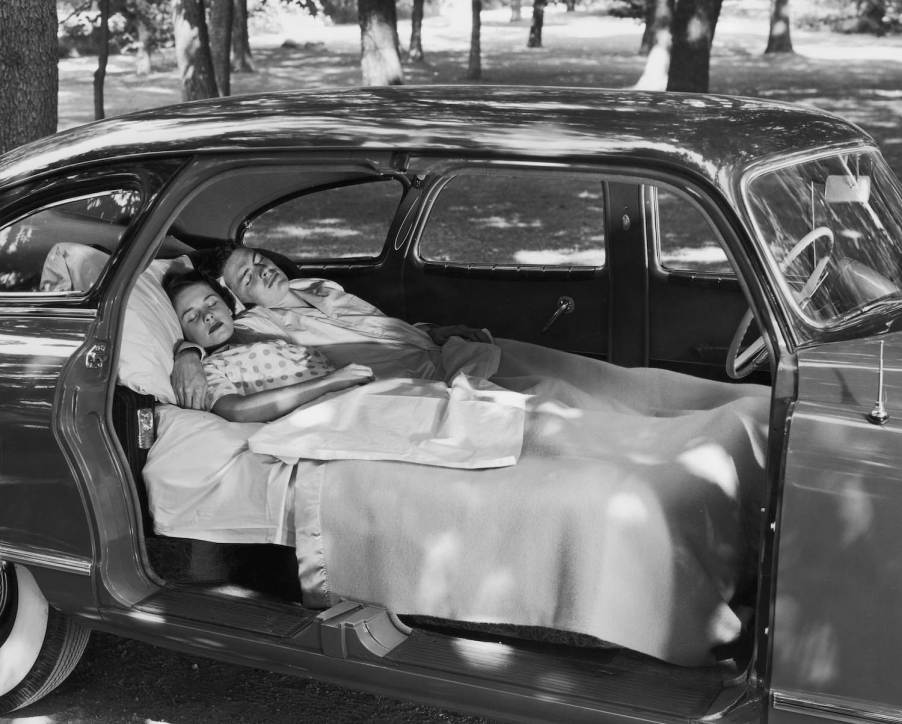
Is Sleeping in Your Car on a Residential Street Illegal?
Whether you are camping in your car or in a camper, finding a spot to park can be a pain. Have you found yourself wondering Is parking and sleeping on a residential street illegal? The truth is that no federal law prohibits sleeping in your car on a residential street. But at the same time, many cities struggling with homelessness have banned sleeping in your car or parking your RV on a residential street. It is always important to know local laws. Read on for some alternative parking options.
No federal law bans sleeping on a residential street

It may be surprising to hear, but no federal law prohibits parking your car and taking a nap. This said, individual states, cities, and neighborhoods may have stricter laws about where you can park and sleep.
Nationwide, it is illegal to park and sleep on private property without permission. If you do, you are trespassing. Private property includes every non-public parking space, from driveways to mall parking lots. In addition, it is illegal to be drunk in your car in a public parking space. Finally, your car is not a private space–like your home–so it is illegal to be indecent or harass others from your car.
Many people looking to park an RV for free prefer public parking spaces. Some travelers even rent an RV to park in a public parking space and sleep. One benefit of sleeping in residential neighborhoods is they are often quieter than business neighborhoods. If you choose the right neighborhood, you can walk to downtown then back to your RV or vehicle to sleep. Remember to always shut off the engine before you go to sleep. Dangerous exhaust fumes can permeate a running car. Read more hacks for sleeping in your car comfortably.
Local laws often prohibit sleeping in your car on a residential street

Many cities have made it illegal to sleep in your car in public spaces. In these places, sleeping in your car in a residential neighborhood is a recipe for concerned neighbors calling the police. Occasionally, neighborhoods in cities pass more specific laws against parking and sleeping.
It is best to know the local law before parking and sleeping in your car or RV. Sometimes relevant laws are posted, so read all signs. Some tourist destinations, such as beaches and parks have “No Overnight Camping” bans posted in their parking areas. Other streets have “Resident Only” parking laws or restrict parking to certain hours.
Alternatives to a residential street

Many cities have established a “Safe Parking Program.” A city with such a program maintains a list of lots where overnight parking is legal. These lots may include city-owned, business-owned, and nonprofit-owned lots. You can Google your city name and “Safe Parking Program.” Alternatively, you can call the city hall for more information.
You can always ask permission to park and sleep in any private lot. Some businesses have a track record of welcoming overnight campers. One of these businesses is Walmart, though this policy varies by store. In addition, many casinos are happy to have people park overnight. Finally, some churches are happy to offer refuge to those in need of an overnight parking space.
Planning your next road trip? Read the ins and outs of sleeping in each of the following areas:
- Sleeping in your car at the beach
- Sleeping in your car in a Walmart parking lot
- Sleeping in your car at a 24-hour gym
- Sleeping in your car in a church parking lot
- Sleeping in your car in a casino parking lot





